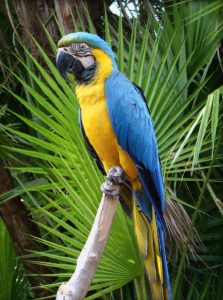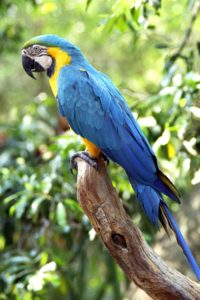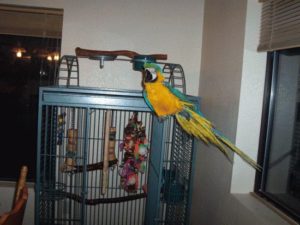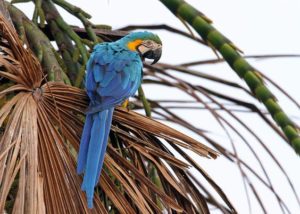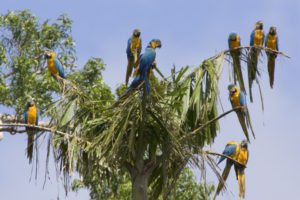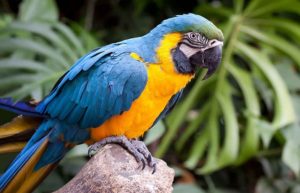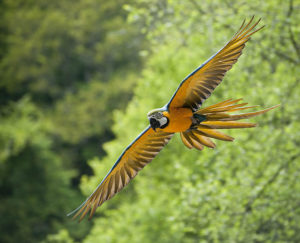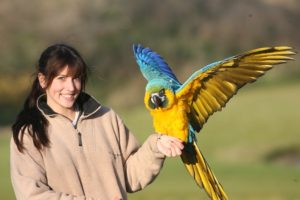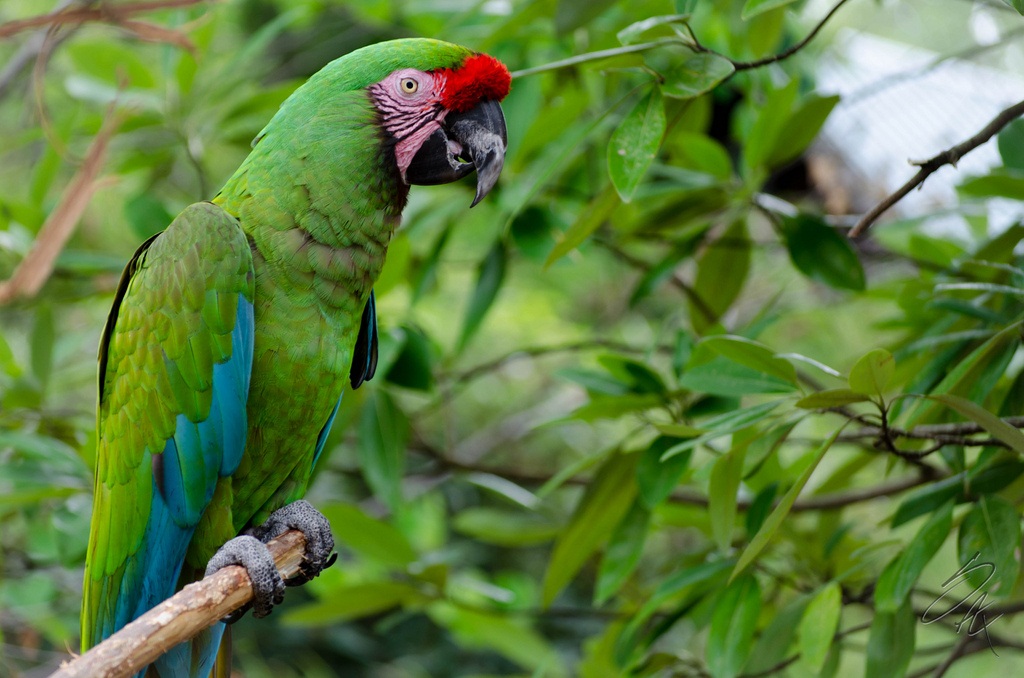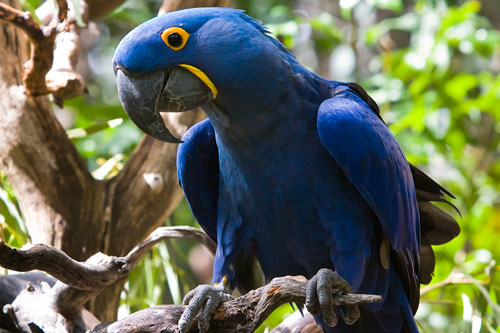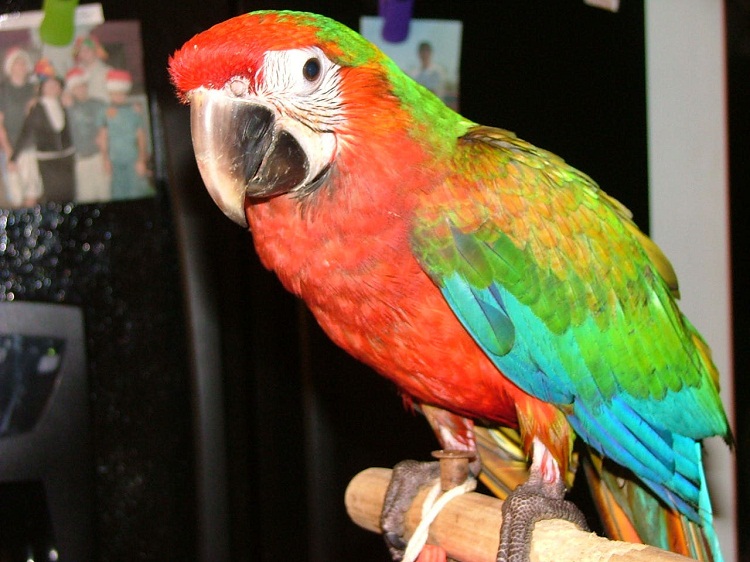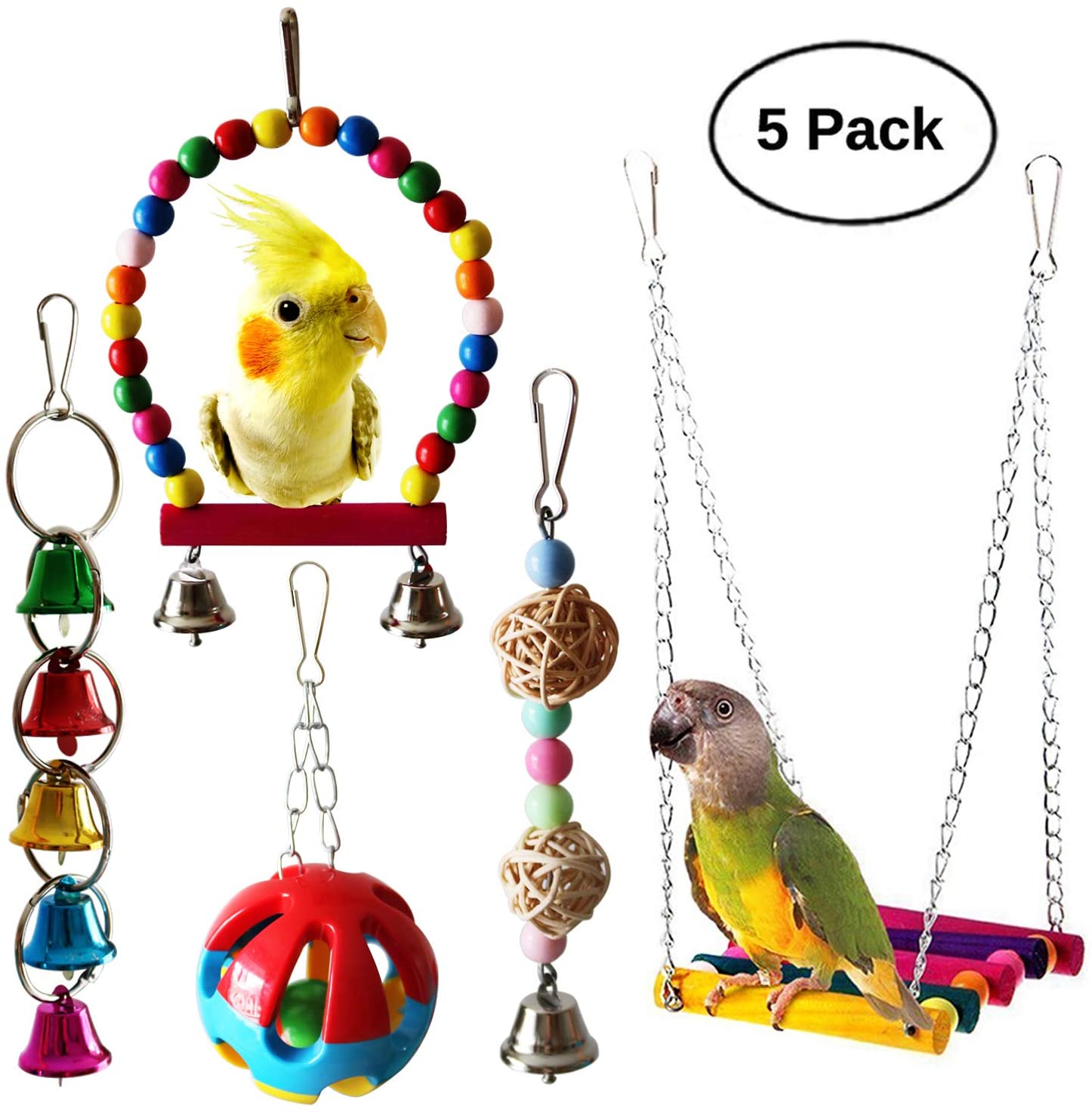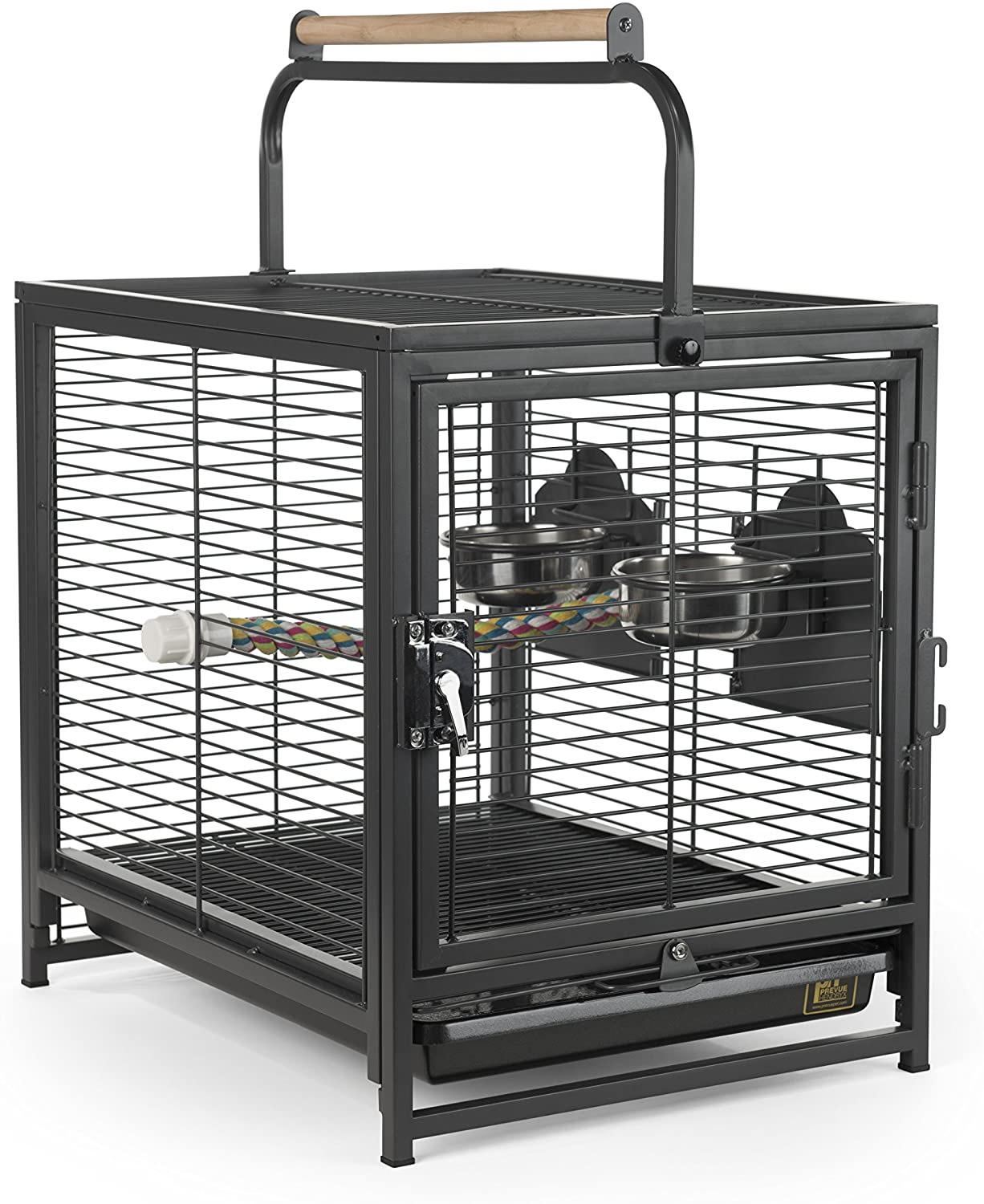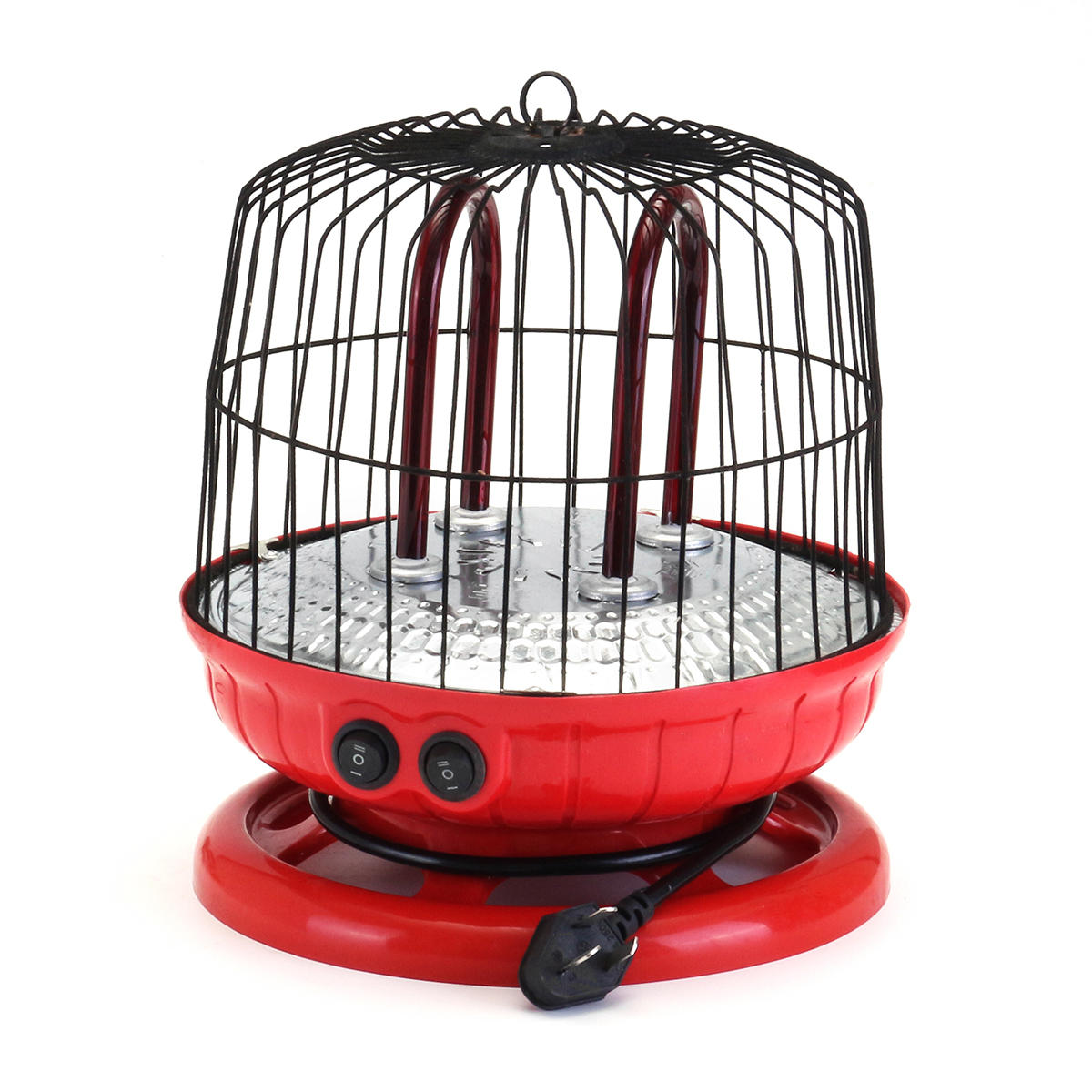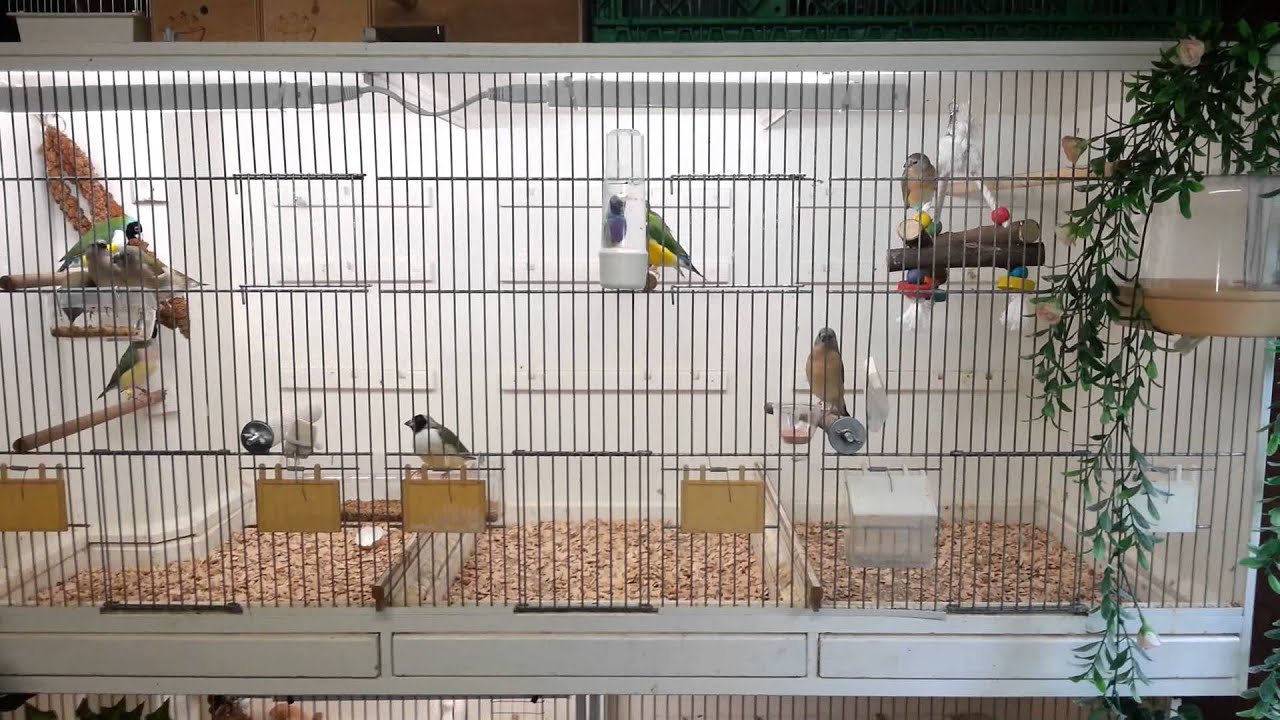One of the most readily available of macaws, and also one of the most inexpensive, the blue and gold macaws are a popular choice as pets.
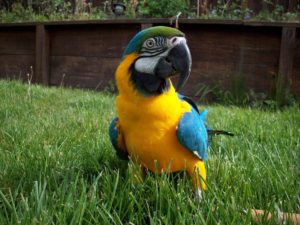
Blue and Gold Macaw Bird
Scientific Classification |
|
| Kingdom | Animalia |
| Phylum | Chordata |
| Class | Aves |
| Order | Psittaciformes |
| Superfamily | Psittacoidea |
| Family | Psittacidae |
| Subfamily | Arinae |
| Tribe | Arini |
| Genus | Ara |
| Scientific Name | Ara ararauna |
Quick Information |
|
| Also known as | Blue and yellow macaw, Bolivian blue and gold macaw |
| Description | Color: Black beaks, legs, and throat, naked white face (turns pink when excited, like a blush) and have lining of little back feathers, the wings and tail are blue, the chin is dark-blue, a green forehead and golden undersides and wing coverts; eyes are yellow in color No sexual dimorphism Size: 2.66-3.0 ft (81-91.5 cm) long Weight: 2.0-3.97 lbs (0.9-1.8 kg) |
| Distribution | Peru, Venezuela, Bolivia, Brazil, Paraguay, Panama, and Mexico |
| Habitat | Riparian and swampy rainforests |
| Sounds and calls | Very loud and harsh sounds |
| Clutch size | 2-3 eggs |
| Incubation period | Around 28 days |
| Fledging | After 97 days of hatching |
| Breeding age | 3-4 years |
| Breeding season | January to July |
| Lifespan | In the wild: 30-35 years In captivity: Up to 50 years |
| Diet | Fruits, seeds, and nuts |
| IUCN conservation status | Least Concern |
Mutations
- Blue (colors are blue and white)
- Opaline
- Lutino
As pets
The vibrant coloring and talking ability makes the blue and yellow macaw a good choice for a pet. But owners have to be dedicated in your interaction with the bird to get the best companionship out of it. Also, the loud vocalizations and large size make it a wrong choice as an apartment pet.
Housing
They will require a roomy cage, at least 3’x2’x5’. Provide sturdy perches, toys, both for playing and chewing. You can dedicate a room in your house for your bird, or you can put it in an outdoor aviary. Let it spend some time, preferably a minimum of 2-3 hours outside the cage.
Temperature
A blue and gold macaw is usually comfortable with temperatures ranging between 70°F-80°F (21°C-27°C).
Temperament
They make an ideal family bird because of their gentle personality, usually having a rapport with more than one person, although they may prefer someone slightly over others. As with all macaws, they do get aggressive and nippy sometimes. Their strong beaks can easily sever off a finger or two. You must socialize your bird with as many people as possible to get the best behavior out of it in different situations.
Feeding
Give your blue and gold commercially made pellet and seed mixes specially prepared for macaws. They also may like something that you’re having, and you can feel free to share as long as the food is nutritious. Chicken can be a good source of protein and also falls in the favorite foods category.
Avoid feeding the bird chocolate and avocado as both of these are toxic to them.
Care
Replace the food and water dishes daily with clean ones. The floor of the cage needs to be washed every other week, while the perches and toys should be washed every week.
Do a complete disinfection of the whole cage at least once a year.
Bathe your pet every day either with a mist spray or a bird bath and let it dry out in the sun.
Health problems
They are a hardy bird, but some of the health problems they may suffer from are:
- Proventricular Dilation Disease
- Psittacosis
- Bacterial, fungal or viral infections
- Feather picking
- Beak malformation (chicks)
- Papillomas
- Kidney disease
- Allergies
- Feather picking as a result of boredom, unhealthy diet, not bathing and sexual frustration
- Heavy metal poisoning
- Lipomas (older individuals)
A balanced, healthy diet, regular visits to a veterinarian and adequate social interactions keep most of the above illnesses from appearing.
Price
Depending on the mutation, or the lack thereof, a blue and gold macaw cost between $1,000 and $3,000.
Interesting facts
- The blue and gold macaws are hybridized with scarlet macaws and green-winged macaws to produce the Catalina macaw and harlequin macaw, respectively.
- They are an important part of the forests they inhabit in that they play a significant role in seed dispersal.
Blue and Yellow Macaw Talking Video
References:
- http://animaldiversity.org/accounts/Ara_ararauna/
- https://en.wikipedia.org/wiki/Blue-and-yellow_macaw
- https://beautyofbirds.com/blue-and-gold-macaw/
- https://beautyofbirds.com/blue-and-gold-macaw/
- http://animal-world.com/encyclo/birds/macaws/blu_gld.php
- https://www.britannica.com/animal/blue-and-yellow-macaw
- https://www.thesprucepets.com/blue-and-gold-macaws-390831
- https://lafeber.com/vet/basic-information-sheet-for-the-macaw/


